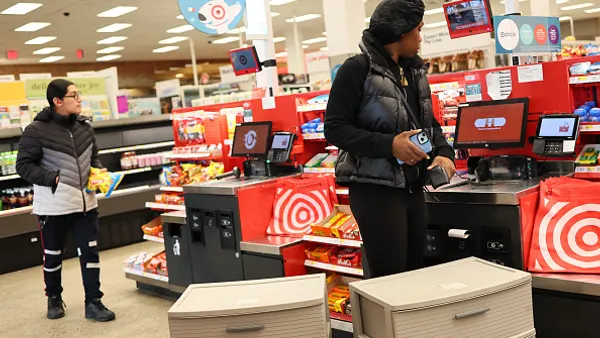Dive Brief:
- An estimated 48 million non-elderly people in the U.S. could be part of a household in which someone loses a job due to COVID-19 between April and December, according to an analysis from the Urban Institute and Robert Wood Johnson Foundation. As a result, more than 10 million people may lose employer-sponsored health insurance during that time.
- Some 3.3 million people are expected to regain insurance by being added to another family member's policy while 2.8 million people will enroll in Medicaid.
- Another 600,000 people are expected to enroll in the individual market through the Affordable Care Act's marketplace. Still, 3.5 million people are expected to become uninsured.
Dive Insight:
Despite some gains in June, the U.S. unemployment rate is hovering around 11%, according to the Bureau of Labor Statistics. This February, the U.S. unemployment rate was 3.5%.
The latest findings predict ongoing pandemic-related job losses will lead to widespread loss of coverage, using projections on employment losses by industry, state, and demographic characteristics regularly published by the U.S. Department of Labor.
Of the 48 million expected to lose a job during the period, about 34% of the workers and family members experiencing job loss within the family had insurance through another family member's job, while 27% were covered by Medicaid or the Children's Health Insurance Program prior to the pandemic.
Roughly a fifth of the group received insurance tied to the job they lost due to the pandemic. A smaller share were covered in plans through the non-group market, other public programs or were not insured.
Researchers also found that higher percentages of people will lose their coverage in states that did not expand Medicaid eligibility under the Affordable Care Act. Some 13 states, including many that have seen a recent surge in COVID-19 cases, have yet to expand Medicaid, including Florida and Texas.
The report estimates 34% of people losing employer coverage will become uninsured in Medicaid expansion states, and that number will hike to 55% in non-expansion states.
"The economic disruption caused by COVID-19 is a test of the safety net health insurance programs created under the Affordable Care Act," the study said. Unemployed workers who lost their employer-sponsored coverage may become eligible for one of the two major subsidized coverage programs established by the ACA: the Medicaid expansion for people with low incomes, and the ACA marketplaces.
It's the latest in myriad reports attempting to quantify the very real affects of the pandemic on the number of insured.
A recent study from Families USA estimates 5.4 million Americans have lost coverage amid the pandemic between February and May, while Kaiser Family Foundation estimates 27 million Americans lost coverage between March and May.














